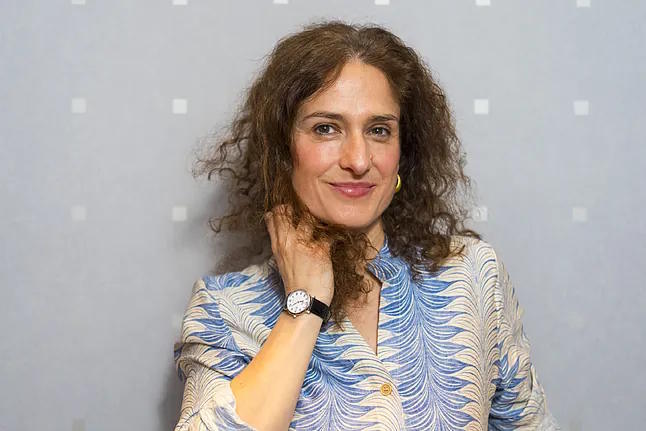What does the concept of brain plasticity mean as described?
It is an idea that originates from Santiago Ramón y Cajal, although there were some earlier intuitions, and it is the opposite of the previous idea of the rigid brain, the brain that is fixed and cannot change. No. The brain is plastic, it reorganizes itself and is capable of changing behavior and, conversely, behavior changes it. That's why Cajal said: "We can all be sculptors of our brain if we set our minds to it." This is the phrase that this book tries to explain.
And being aware of this plasticity, how does it change our idea of the world and ourselves?
Now we talk about mental health, but we don't talk about protecting it, preventing disorders, taking care of ourselves based on our life story. We all accept that we should take care of our bodies, but few people acknowledge that they have the ability to change the brain. Few people know that this plasticity can be directed. On the contrary, we often encounter the idea of "I am like this, I am like this and I won't change." I'm not saying that everything is possible with willpower, mind you.
When you talk about preventive care, does it refer to therapy, stimulating the brain, and leading a reasonably healthy life? Not much more, right?
Therapy is important. Studies say that 70% of the population goes through potentially traumatic situations in their lives, but only 10% receive rigorous professional support. The rest rely on their siblings and friends, who are wonderful but only go so far. It's like spraining an ankle and thinking it will heal on its own. We are beings with wandering minds. "This happened to me, that happened, and I end up becoming a smooth pebble..." We don't think that the mind heals, that the mind needs preventive work... We illusorily separate physical health from mental health, and that's why disorders and suffering that could be minimized occur. It's an interesting concept: preventable harm, the harm we receive, and the harm we cause. Against that is directed plasticity.
Does foreseeing mean being ready so that the day a parent dies, the world doesn't end for me, or does it mean starting now to limit the cognitive decline that will come? For cognitive decline, there is something called triple therapy for the prevention of mild cognitive impairment that can lessen effects, not prevent them. It would be very imprudent to talk about anything else for now. The progression of Alzheimer's can be slowed down, but it cannot be prevented from happening. And that is important to know. We work to have the best possible health, but we may not have it, not even in the problems we associate with behavior. Suffering a heart attack does not mean deserving a heart attack. Wanting is not always being able to, and that confusion does a lot of harm.
To a colleague and fellow countryman, Agustín Fernández Mallo, writer and physicist...
He's great, Agustín....
I read him an idea: physics is the most abstract science and the one with the most status, but it describes entropy, the destruction of matter. In contrast, biology speaks of the survival of life. One is a pessimistic science and the other, optimistic. And you are in both.
I would have to think about the physics and pessimism part. In physics, you never fully understand what happens. In biology, on the other hand, the cause-effect relationship is clear. I do believe that physics is a more advanced science theoretically, that biology and medicine lack a theoretical leap that has yet to come.
Do you have a sense of what it will consist of?
In physics, precisely. I conduct my brain research based on Newton's physics, not quantum physics. There is a leap there that is yet to be made.
And then, those of us left outside won't understand anything.
That is already a problem, because there are people who take advantage of that lack of understanding for their benefit. I went to a yoga session and the instructor said, "Leave your brains in alpha." And I thought, "Quick, call an ambulance."
Do you use the word happiness often? Do you find it relevant?
No. I don't care much about it. It's a word that has been cheapened and overused. In mental health, there is a battery of questionnaires dedicated to measuring people's psychological state. We measure anxiety, stress, depression... what we would call negative indicators. Then there are the positives: life satisfaction, well-being, hope... which are more imprecise. Ultimately, we always talk about the negatives. Out of every 100 articles on mental health, only one talks about the strengths of the mind. It seems that being well is just not being unwell. We have a very precise vocabulary for discomfort. On the other side, there is only the word happiness, which is like an umbrella that doesn't have a clear meaning.
Question. What is the most impertinent question you have been asked? And how did you respond?
Answer. I get upset with all those approaches that dissociate us from our body and our brain. "It's not me, it's my brain that's like this," as if we were not responsible for our actions.
